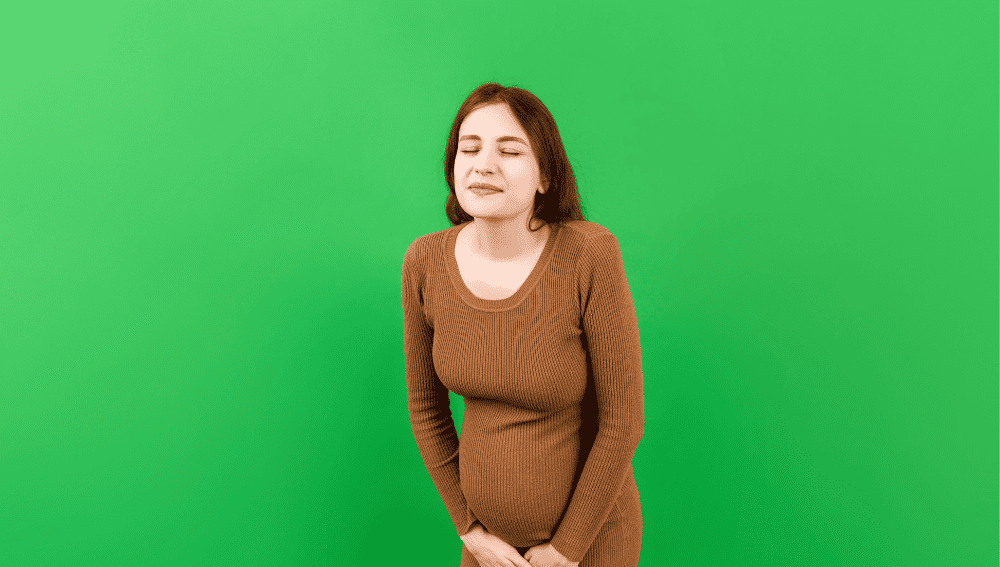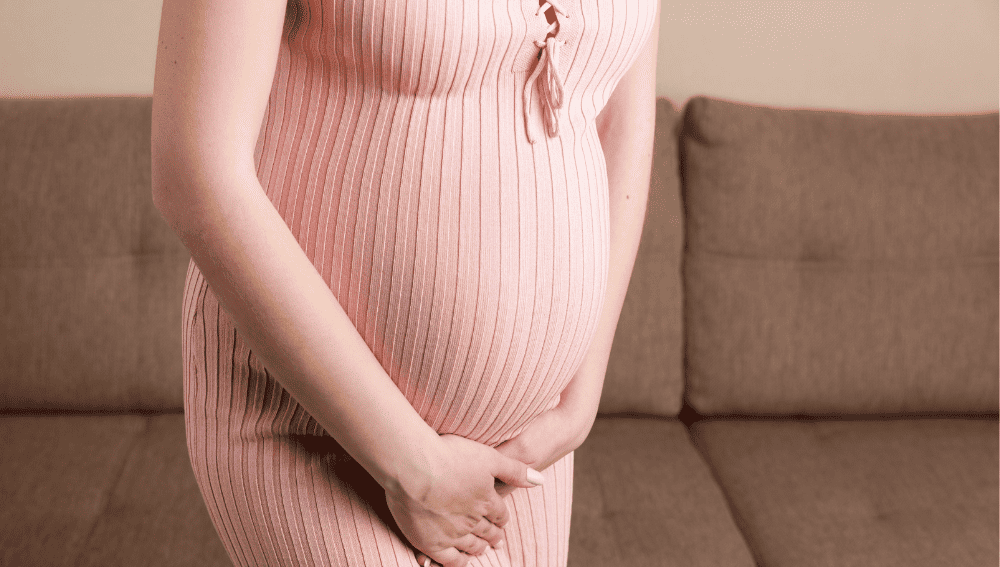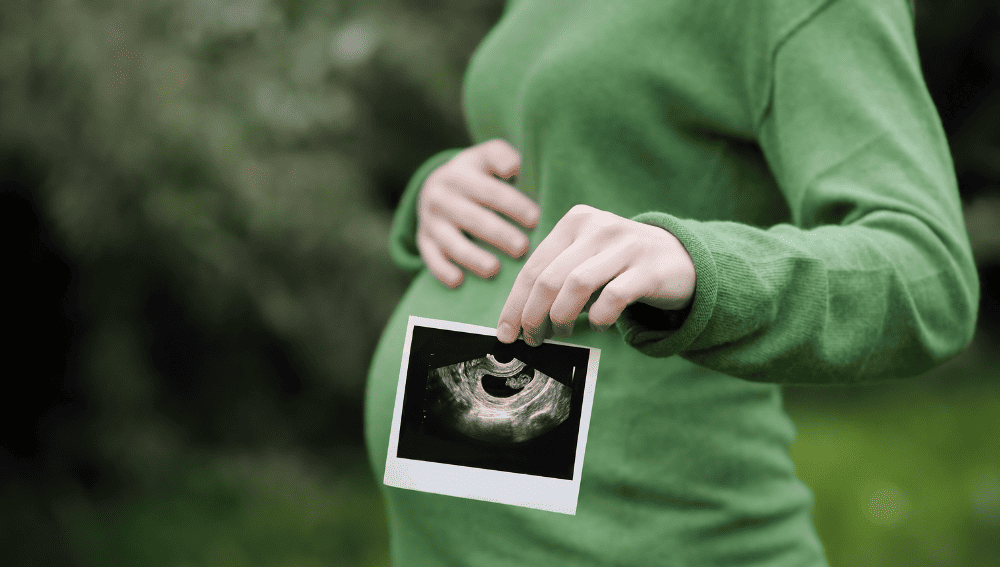Short torso pregnancy is a condition that affects many pregnant women. It is characterized by a shorter distance between the rib cage and the pelvis, which can lead to physical challenges during pregnancy, such as back pain, shortness of breath, and difficulty finding comfortable positions to sleep.
Understanding the unique challenges of short torso pregnancy is important for expectant mothers to ensure a healthy pregnancy and postpartum period.
Physical challenges of short torso pregnancy can be significant. The uterus has less space to expand, which can cause discomfort and pain. Additionally, the diaphragm may be pushed up, making it harder to breathe.
These challenges can be especially difficult in the later stages of pregnancy when the baby is larger and taking up more space. Pregnant women with short torsos may need to take extra care to manage these symptoms and find ways to alleviate discomfort.
Key Takeaways
- Short torso pregnancy can lead to physical challenges such as back pain and shortness of breath.
- Pregnant women with short torsos may need to take extra care to manage these symptoms.
- Understanding the unique challenges of short torso pregnancy is important for ensuring a healthy pregnancy and postpartum period.
Understanding Short Torso Pregnancy
Short torso pregnancy is a condition where a pregnant woman has a shorter-than-average torso length. This condition can have an impact on the pregnancy experience and can cause discomfort for the mother-to-be.
The length of a person’s torso is determined by genetics, and it can vary greatly from person to person. Women with short torsos may experience challenges during pregnancy due to the limited space available for the growing fetus.
During pregnancy, the uterus expands to accommodate the growing fetus, which can put pressure on the diaphragm and cause shortness of breath. Women with short torsos may experience this more acutely due to the limited space available in their abdominal cavity.
Additionally, women with short torsos may experience more back pain during pregnancy. This is because the weight of the growing fetus is concentrated in a smaller area, which can put more strain on the lower back.
It is important for women with short torsos to be aware of these potential challenges and to take steps to manage them. This may include practicing good posture, engaging in regular exercise, and using supportive pillows to alleviate discomfort while sleeping.
It is worth noting that women with long torsos may also experience unique challenges during pregnancy, such as a higher risk of back labor.
However, the impact of torso length on pregnancy is not well-studied, and more research is needed to fully understand the relationship between torso size and pregnancy outcomes.
Physical Challenges of Short Torso Pregnancy
Pregnancy can be a challenging time for any woman, but it can be particularly difficult for those with a short torso.
A short torso can lead to a number of physical challenges during pregnancy, including discomfort, pain, and digestive issues.
Discomfort and Pain
One of the most common challenges of short torso pregnancy is discomfort and pain. As the baby grows, there is less room for the organs to move around, which can lead to discomfort and pain in the back, neck, and other areas. This can make it difficult to sleep, sit, or stand for long periods of time.
Appearance of the Baby Bump
Another challenge of short torso pregnancy is the appearance of the baby bump. Women with short torsos may find that their bump looks larger than it actually is, which can be uncomfortable and make it difficult to find clothes that fit properly.
It can also lead to comments from others about the size of the bump, which can be frustrating and hurtful.
Digestive Issues
Short torso pregnancy can also lead to digestive issues, such as heartburn and acid reflux. As the baby grows, it can put pressure on the stomach, which can cause stomach acid to travel back up into the esophagus.
This can be painful and uncomfortable, and may require medication to manage.
In addition, weight gain during pregnancy can be particularly challenging for women with short torsos. The extra weight can put additional pressure on the back and other areas, which can lead to pain and discomfort.
Overall, short torso pregnancy can be a challenging time for women. However, with the right support and management, it is possible to manage these physical challenges and have a healthy, happy pregnancy.
Health and Nutrition Habits
Dietary Changes
During pregnancy, it is important to maintain a healthy and balanced diet to support both the mother and the growing fetus. Women with short torsos may experience discomfort or difficulty eating larger meals, so it is recommended to consume smaller, more frequent meals throughout the day.
It is important to focus on nutrient-dense foods such as fruits, vegetables, whole grains, lean proteins, and healthy fats. Pregnant women should also aim to stay hydrated by drinking plenty of water and avoiding sugary drinks.
In addition, certain foods should be avoided or limited during pregnancy to reduce the risk of complications. These include raw or undercooked meats, fish with high levels of mercury, unpasteurized dairy products, and processed foods high in sodium and sugar.
Importance of Exercise
Regular exercise is also important during pregnancy to support overall health and reduce the risk of complications.
Women with short torsos may find certain exercises uncomfortable or difficult, so it is important to consult with a healthcare provider before beginning any exercise program.
Low-impact activities such as walking, swimming, and prenatal yoga can be beneficial for pregnant women. Strength training exercises can also help maintain muscle tone and support the body as it changes during pregnancy.
It is important to listen to the body and avoid overexertion or high-impact activities that may cause discomfort or injury. Pregnant women should also stay hydrated and take breaks as needed during exercise.
In addition to regular exercise, healthy snacks such as fruits, vegetables, and nuts can help maintain energy levels and support overall health during pregnancy.
Pregnancy Complications and Risks
Potential for C-Section
Women with short torsos may have a higher risk of needing a cesarean section during delivery. This is because the baby may not have enough room to move down the birth canal. In some cases, the baby may become stuck and require assistance to be delivered safely.
Women with short torsos should discuss this possibility with their healthcare provider and be prepared for the potential need for a c-section.
Premature Birth and Early Labor
Short torso pregnancy may also increase the risk of premature birth and early labor. This is because the uterus may not have enough room to expand properly, leading to contractions and early labor.
Women with short torsos should be aware of the signs of preterm labor, such as regular contractions, vaginal bleeding, and pelvic pressure. If these symptoms occur, it is important to seek medical attention immediately.
Gestational Diabetes
Short torso pregnancy may also increase the risk of gestational diabetes. This is a type of diabetes that develops during pregnancy and can cause complications for both the mother and baby.
Women with short torsos should be screened for gestational diabetes early in pregnancy and monitor their blood sugar levels throughout pregnancy. They should also follow a healthy diet and exercise regimen to help manage their blood sugar levels.
Overall, women with short torsos should be aware of these potential pregnancy complications and risks. By working closely with their healthcare provider and taking steps to manage their health, they can help ensure a safe and healthy pregnancy for themselves and their baby.
Pregnancy and Postpartum Products
Appropriate Clothing
Pregnancy is a time when the body undergoes numerous changes, and it is crucial to wear comfortable clothing that can accommodate these changes.
Women with short torsos may find it challenging to find clothes that fit well during pregnancy. However, there are several options available that can make the experience more comfortable.
- Maternity bras with adjustable straps and hooks can provide the necessary support and comfort to the breasts.
- Dresses with empire waists or A-line cuts can flatter the figure and provide ample room for the growing belly.
- High-waisted leggings or pants can help to elongate the torso and provide support to the lower back.
Supportive Pillows
During pregnancy, sleep can become challenging due to discomfort and pain. Supportive pillows can help alleviate these issues and provide a more restful night’s sleep.
- Pregnancy pillows that wrap around the body can provide support to the back, hips, and belly.
- Wedge pillows can provide support to the back or elevate the legs to reduce swelling.
- Nursing pillows can also be used during pregnancy to provide support to the belly while sleeping.
Registry Builder and Community
Building a registry can be overwhelming, especially for first-time parents. However, there are several registry builders available that can help to simplify the process.
- Registry builders such as Babylist, Amazon, and Target can provide a comprehensive list of items needed for pregnancy and postpartum.
- Joining online communities or forums can also provide support and advice from other parents going through similar experiences.
Overall, pregnancy and postpartum products can be expensive, but there are several options available that can accommodate different budgets. It is essential to do research and choose products that provide comfort and support during this crucial time.
Coping Strategies and Home Remedies
Short torso pregnancy can be challenging, but there are some coping strategies and home remedies that can help alleviate discomfort and make the experience more manageable.
Exercise and Stretching
Regular exercise and stretching can help improve flexibility and reduce muscle tension, which can be particularly helpful for women with short torsos. Low-impact exercises like yoga, swimming, and walking can be especially beneficial.
Prenatal yoga classes can also provide support and guidance for modifying poses to accommodate a shorter torso.
Supportive Clothing
Wearing supportive clothing can help provide relief for the lower back and abdominal muscles. Maternity belts, belly bands, and compression shorts can help support the belly and reduce strain on the back.
It is important to choose clothing that fits well and does not constrict breathing or circulation.
Relaxation Techniques
Stress and tension can exacerbate discomfort during pregnancy. Relaxation techniques like deep breathing, meditation, and visualization can help reduce stress and promote relaxation.
It can also be helpful to practice good sleep hygiene by establishing a regular sleep routine and creating a comfortable sleep environment.
Home Remedies
There are several home remedies that can help alleviate common pregnancy symptoms like morning sickness and pregnancy brain. Some effective remedies include:
- Ginger: Ginger can help alleviate nausea and vomiting. It can be consumed as a tea, in capsule form, or as a supplement.
- Peppermint: Peppermint can help soothe upset stomachs and reduce nausea. It can be consumed as a tea, in capsule form, or as a supplement.
- Omega-3 Fatty Acids: Omega-3 fatty acids can help improve brain function and reduce inflammation. They can be consumed through foods like salmon, walnuts, and flaxseed, or as a supplement.
Overall, it is important to listen to your body and communicate with your healthcare provider about any concerns or discomfort you may be experiencing. With the right strategies and support, women with short torsos can have a healthy and comfortable pregnancy.
Experiences Across Multiple Pregnancies
When it comes to pregnancy, every woman’s experience is unique. However, some women may find that they have a short torso, which can present its own set of challenges during pregnancy.
Here are some experiences across multiple pregnancies from women with short torsos.
First Pregnancy
For many women, their first pregnancy is a learning experience. This is especially true for women with short torsos, who may find that their growing belly puts pressure on their ribs and lungs, making it difficult to breathe. Some women may also experience back pain, as their center of gravity shifts.
One woman, who is 5’2″ with a short torso, found that she had to wear maternity clothes earlier in her pregnancy than she expected. She also found that she had to be careful when bending over, as her belly would get in the way.
Second Pregnancy
For women who have had a previous pregnancy, the experience may be different the second time around. One woman, who is 5’3″ with a short torso, found that her second pregnancy was easier than her first.
She had already learned how to manage her short torso during pregnancy, and was better prepared for the physical changes that come with carrying a baby.
Another woman, who is 5’1″ with a short torso, found that her second pregnancy was more challenging than her first. She had a toddler to care for, which made it more difficult to rest when she needed to. She also found that she had more back pain during her second pregnancy.
Overall, women with short torsos may face some unique challenges during pregnancy. However, with the right preparation and support, they can still have a healthy and happy pregnancy.
Childbirth and Postpartum Period
Mother and Child Bonding
The childbirth experience is a significant moment for both the mother and child. During childbirth, the mother experiences contractions as the baby moves through the birth canal. After delivery, the mother and child are given time to bond.
This bonding period is essential as it helps to strengthen the emotional connection between the mother and child.
Bonding with the baby can start immediately after delivery. Skin-to-skin contact is a great way to bond with the baby. This technique involves placing the newborn baby on the mother’s bare chest, allowing the baby to feel the mother’s warmth and heartbeat.
This technique helps the baby to feel safe and secure, and it can also help the mother to produce more breast milk.
Managing Postpartum Body Changes
The postpartum period is a time when the mother’s body undergoes significant changes. These changes can include stretch marks, weight gain, and changes in breast size. It is essential to manage these changes to ensure that the mother’s body can recover and heal correctly.
Stretch marks are a common occurrence during pregnancy. These marks appear on the skin when the skin stretches beyond its capacity.
To manage stretch marks, the mother can use creams and lotions that contain vitamin E and cocoa butter. These creams can help to reduce the appearance of stretch marks.
Weight gain is also a common occurrence during pregnancy. After delivery, the mother should engage in light exercises such as walking to help reduce the weight gained during pregnancy. Breastfeeding can also help the mother to lose weight.
During the first year after delivery, the mother should focus on getting enough rest and taking care of herself. This period can be challenging as the mother adjusts to caring for a newborn baby.
As the baby grows into a toddler, the mother can start to focus on her physical health and well-being. The postpartum period is a challenging time, but with proper care and management, the mother can recover and heal correctly.
Frequently Asked Questions
How does torso length affect pregnancy?
Torso length can affect pregnancy in several ways. Women with a short torso may find that their growing uterus puts pressure on their lungs and stomach, causing discomfort and difficulty breathing.
Additionally, a shorter torso may result in less space for the baby to grow, which can lead to complications during labor and delivery.
When does a short torso typically start showing during pregnancy?
A short torso can cause a woman to start showing earlier in pregnancy than someone with a longer torso. This is because there is less space for the uterus to expand, so it may become visible sooner.
What are some common problems associated with having a short torso during pregnancy?
Some common problems associated with having a short torso during pregnancy include shortness of breath, heartburn, and difficulty finding a comfortable sleeping position.
Additionally, women with a short torso may be at higher risk for complications during labor and delivery, such as preterm labor and cesarean delivery.
Can having a short torso cause early labor?
There is some evidence to suggest that women with a short torso may be at higher risk for preterm labor. This may be due to the fact that there is less space for the baby to grow, which can put stress on the uterus and trigger contractions.
Does torso length affect the size of the baby bump during pregnancy?
Torso length can affect the size of the baby bump during pregnancy. Women with a short torso may have a smaller bump than someone with a longer torso, even if they are carrying the same size baby.
Are there any celebrities known for having a short torso during pregnancy?
There are several celebrities who have been open about their short torso during pregnancy, including Kim Kardashian, Christina Aguilera, and Jessica Simpson.
However, it is important to note that every woman’s body is unique, and what works for one person may not work for another.
Learn more from another post: Can You Suck In Your Stomach When Pregnant?
For more questions, contact Parental Questions now!

Iesha is a loving mother of 2 beautiful children. She’s an active parent who enjoys indoor and outdoor adventures with her family. Her mission is to share practical and realistic parenting advice to help the parenting community becoming stronger.



